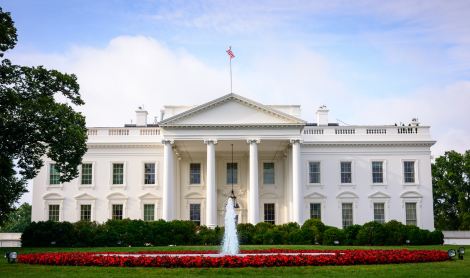Despite the tenor of the national rhetoric, 2019 was a quiet year for charter school legislation in statehouses across the country. That said, as we reflect on this year’s legislative activity, two trends highlight how policymakers are looking to authorizing as a lever to strengthen and grow their state charter school sectors.
This week, we’ll explore the first trend: legislation that either places more expectations on authorizers or protects and expands their autonomy. Next week, we’ll dive into states with diverging views on statewide authorizing.
Placing Additional Expectations for Authorizers
Seven states introduced bills that placed additional expectations on authorizers, though many of these bills either failed to reach a final vote or are still pending.
Bills with additional expectations for authorizers passed in two states. Nevada enacted authorizer-supported legislation requiring authorizers to conduct an academic needs assessment for the geographic area they cover, conduct three site visits during a charter school’s term, and develop action plans alongside schools for addressing deficiencies. Hawaii enacted legislation giving authorizers additional financial oversight, including granting them input on which independent auditor schools can use.
Legislation in other states ultimately fell short. In Arizona, legislation would have required an authorizer to annually compile and publicly report information on the governing boards of each school it oversees. In California, a bill would have required authorizers to review and approve “local control and accountability plans,” in addition to mandating charter schools follow the same requirements applicable to school districts when developing these plans. In Missouri, authorizers would have been required to evaluate charter schools on financial and operational metrics in addition to academic metrics.
Lastly, a bill is pending in Washington DC that would require the DC Public Charter Schools Board to monitor new governance requirements, publish additional financial information from charter schools, and oversee FOIA compliance.
Protecting Authorizing Autonomy
Three states introduced bills that protect or expand authorizer autonomy, ensuring authorizers have the ability to use experience and professional judgment in their decision making.
Tennessee passed a law giving authorizers more discretion in remedying charter schools in the lowest tier of the state accountability system. Under the previous law, authorizers were forced to revoke the charter of any school that fell in the lowest, “priority” tier. The new law gives authorizers the additional option to develop a one-year corrective action plan with the school. However, if the school fails to improve and remains at in the “priority” tier the following year, the authorizer must revoke its charter.
In Nevada, authorizers now have discretion to renew a charter for a term between three and ten years. Previously, the only renewal option was a six-year term.
The New Mexico legislature introduced a bill that would have granted authorizers broad responsibility to “oversee the governing body” and intervene when a charter school board failed to act in “the best interest of the charter school.” As introduced, the bill broadly defined the authorizer’s oversight scope, yet also restricted the available interventions by requiring each charter contract to spell out available sanctions, such as replacing the board, and the findings that would trigger each sanction. An amended version narrowed the scope of mandatory oversight, specifying oversight of “the governing body’s compliance with federal and state laws” and returned discretion to the authorizer on how to intervene, permitting authorizers to “exercise sanctions short of revocation in response to deficiencies in…legal compliance.” The amended bill passed the Senate and House committees before failing to reach a final House vote, and ultimately fell short the last day of the legislative session.
What It All Means
Lawmakers across the country continue to see a need to strengthen the charter sector. In many states, they also want to see the sector continue to grow.
When it comes to actual policy changes, legislators are looking to authorizers as the best way to impact the charter sector. As lawmakers look to give authorizers additional responsibilities and place further trust in their work, it will be more important than ever for authorizers to adopt best practices that focus on creating more great schools for children.
Jason Zwara analyzes and develops charter authorizing policies as part of NACSA’s policy team. He tracks state and federal legislation and creates policy resources for members and advocacy partners. Have policy questions? Please reach out at [email protected]


